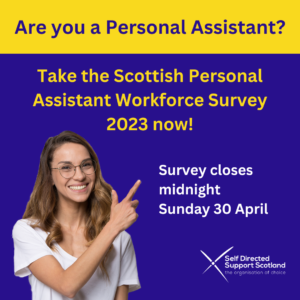Published: December 8, 2023
PA Employers and Personal Assistants sought to shape work on wellbeing
A new project aimed at improving the wellbeing of Personal Assistants in Scotland is seeking PAs and PA Employers to join expert groups to guide the work. The project also…
